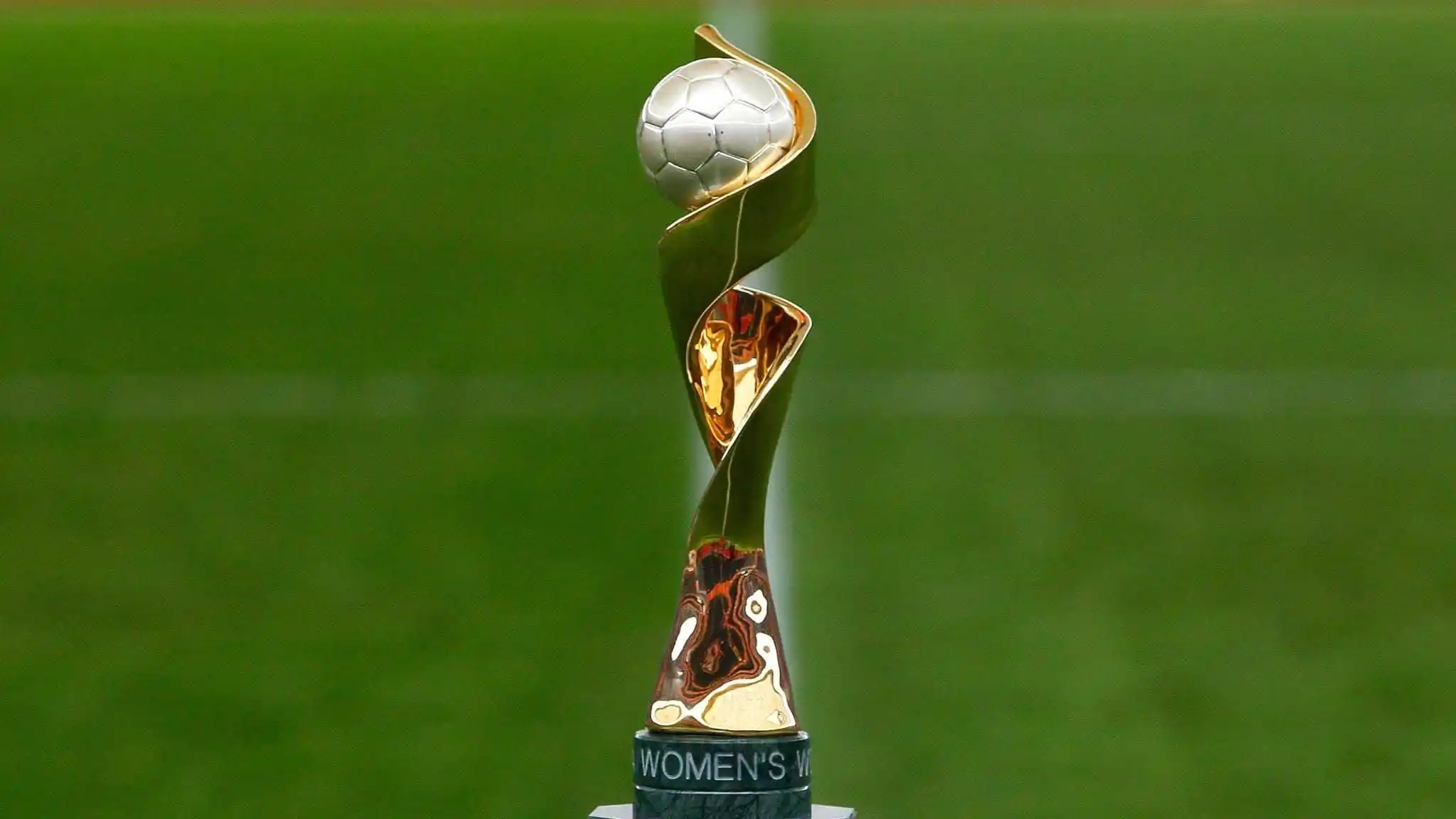Table of Content
Details
|
Event name
|
FIFA Women's World Cup
|
|
Organized by
|
Fédération Internationale de Football Association (FIFA)
|
|
Started in
|
1991
|
|
Location (2023)
|
Australia and New Zealand
|
|
Type
|
Sports Event
|
|
Budget
|
$395 Million.
|
History
![FIFA Women's World Cup History.tring]()
The first Women's World Cup was played in July 1970 in Italy. In 1971, another unauthorized Women's World Cup tournament was held in Mexico. The final match was played in Azteca Stadium, where Denmark defeated Mexico and became the champion.
The FIFA Congress eventually placed more attention on women's football games after Ellen Wille highlighted the need. In 1988, the FIFA Women's Invitation Tournament was held in China to assess the potential of a women's world cup. The competition featured four UEFA teams, three AFC sides, two CONCACAF clubs, and a team from CONMEBOL, CAF, and OFC. It was declared a success after the first match drew 45,000 viewers. Norway was crowned champion after defeating Sweden, with Brazil finishing third.
FIFA officially approved the creation of a Women's World Cup on the 30th of June, 1991, and it was scheduled to take place in China. The inaugural tournament was won by the United States, who defeated Norway 2-1 in the final. The United States has been the most successful team in the tournament's history, winning the tournament four times (1991, 1999, 2015, and 2019). Germany is the second most successful team, winning the tournament twice (2003 and 2007). The other teams to have won the tournament are Japan (2011) and Norway (1995).
The 2019 tournament was held in France and was won by the United States for the fourth time. The final was contested between the United States and the Netherlands, with the United States winning 2-0. This was the first time the Netherlands had reached the tournament's final.
The FIFA Women's World Cup has become one of the most watched and popular sporting events in the world, drawing millions of viewers from around the globe. The tournament has also helped to raise the profile of women's football and has led to increased investment and support for the sport. The next tournament will take place in 2023 and be held in Australia and New Zealand.
FIFA Women's World Cup has come a long way since its inception. The tournament has helped to raise the profile of women's football and has led to increased investment and support for the sport. It has drawn millions of fans worldwide, and the next 2023 competition will be no different. It's a great platform for female footballers to showcase their talent and for fans to enjoy the game.
Champions
![FIFA Women's World Cup Champions.tring]()
|
Year
|
1991
|
1995
|
1999
|
2003
|
2007
|
2011
|
2015
|
2019
|
|
Winner
|
USA
|
Norway
|
USA
|
Germany
|
Germany
|
Japan
|
USA
|
USA
|
|
Host Country
|
China
|
Sweden
|
USA
|
USA
|
China
|
Germany
|
Canada
|
France
|
Trophy
![fifa womens world cup trophy.tring]()
The trophy, developed in 1998 for the 1999 competition, is shaped like a spiral band with a football housed at the tip. The trophy symbolizes women's international football agility, energy, and grace. It was furnished with a cone-shaped structure in the 2010s.
In the 2010s, it was fitted with a cone-shaped base. The tournament's past winners' names are inscribed beneath the base. The trophy measures 47 cm (19 in) high, weighs 4.6 kg (10 lb) and is crafted of solid silver covered in 23-karat yellow and white gold. It is claimed to be worth $30,000.
A new Winner's Trophy is also constructed, one per women's champion to take home, as opposed to the men's trophy, which FIFA keeps, and each men's champion receives a replica. The winners also receive the FIFA Champions Badge, which they wear on their jersey until the winner of the next tournament is announced.
Schedule
FIFA Women's World Cup will start on the 20th of July, and the final will be held on the 20th of August. Australia and New Zealand will be hosting the 2023 FIFA Women's World Cup.
Venues
|
City
|
Stadium
|
|
Adelaide, Australia
|
Hindmarsh Stadium
|
|
Auckland, New Zealand
|
Eden Park
|
|
Brisbane, Australia
|
Brisbane Stadium
|
|
Dunedin, New Zealand
|
Dunedin Stadium
|
|
Hamilton, New Zealand
|
Waikato Stadium
|
|
Melbourne, Australia
|
Melbourne Rectangular Stadium
|
|
Perth, Australia
|
Perth Rectangular Stadium
|
|
Sydney, Australia
|
Stadium Australia
|
|
Sydney, Australia
|
Sydney Football Stadium
|
|
Wellington, New Zealand
|
Wellington Regional Stadium
|
Matches
![FIFA Women's World Cup 2023 Matches.tring]()
|
Date
|
Team A
|
Team B
|
Location
|
|
20th of July
|
New Zealand
|
Norway
|
Eden Park, Auckland
|
|
20th of July
|
Australia
|
Republic of Ireland
|
Sydney Football Stadium, Sydney
|
|
21st of July
|
Philippines
|
Switzerland
|
Dunedin Stadium, Dunedin
|
|
21st of July
|
Nigeria
|
Canada
|
Melbourne Rectangular Stadium, Melbourne
|
|
21st of July
|
Spain
|
Costa Rica
|
Wellington Regional Stadium, Wellington
|
|
22nd of July
|
Zambia
|
Japan
|
Waikato Stadium, Hamilton
|
|
22nd of July
|
England
|
-
|
Brisbane Stadium, Brisbane
|
|
22nd of July
|
Denmark
|
China PR
|
Perth Rectangular Stadium, Perth
|
|
22nd of July
|
USA
|
Vietnam
|
Eden Park, Auckland
|
|
23rd of July
|
Netherlands
|
-
|
Dunedin Stadium, Dunedin
|
|
23rd of July
|
France
|
Jamaica
|
Sydney Football Stadium, Sydney
|
|
23rd of July
|
Sweden
|
South Africa
|
Wellington Regional Stadium, Wellington
|
|
24th of July
|
Brazil
|
-
|
Hindmarsh Stadium, Adelaide
|
|
24th of July
|
Italy
|
Argentina
|
Eden Park, Auckland
|
|
24th of July
|
Germany
|
Morocco
|
Melbourne Rectangular Stadium, Melbourne
|
|
25th of July
|
Colombia
|
Korea Republic
|
Sydney Football Stadium, Sydney
|
|
25th of July
|
New Zealand
|
Philippines
|
Wellington Regional Stadium, Wellington
|
|
25th of July
|
Switzerland
|
Norway
|
Waikato Stadium, Hamilton
|
|
26th of July
|
Canada
|
Republic of Ireland
|
Perth Rectangular Stadium, Perth
|
|
26th of July
|
Spain
|
Zambia
|
Eden Park, Auckland
|
|
26th of July
|
Japan
|
Costa Rica
|
Dunedin Stadium, Dunedin
|
|
27th of July
|
Australia
|
Nigeria
|
Brisbane Stadium, Brisbane
|
|
27th of July
|
USA
|
Netherlands
|
Wellington Regional Stadium, Wellington
|
|
27th of July
|
Group A Play-off Winner
|
Vietnam
|
Waikato Stadium, Hamilton
|
|
28th of July
|
England
|
Denmark
|
Sydney Football Stadium, Sydney
|
|
28th of July
|
China PR
|
-
|
Hindmarsh Stadium, Adelaide
|
|
28th of July
|
Argentina
|
South Africa
|
Dunedin Stadium, Dunedin
|
|
29th of July
|
France
|
Brazil
|
Brisbane Stadium, Brisbane
|
|
29th of July
|
Group C Play-off Winner
|
Jamaica
|
Perth Rectangular Stadium, Perth
|
|
29th of July
|
Sweden
|
Italy
|
Wellington Regional Stadium, Wellington
|
|
30th of July
|
Germany
|
Colombia
|
Sydney Football Stadium, Sydney
|
|
30th of July
|
Korea Republic
|
Morocco
|
Hindmarsh Stadium, Adelaide
|
|
30th of July
|
Switzerland
|
New Zealand
|
Dunedin Stadium, Dunedin
|
|
30th of July
|
Norway
|
Philippines
|
Eden Park, Auckland
|
|
31st of July
|
Canada
|
Australia
|
Melbourne Rectangular Stadium, Melbourne
|
|
31st of July
|
Republic of Ireland
|
Nigeria
|
Brisbane Stadium, Brisbane
|
|
31st of July
|
Japan
|
Spain
|
Wellington Regional Stadium, Wellington
|
|
31st of July
|
Costa Rica
|
Zambia
|
Waikato Stadium, Hamilton
|
|
1st of August
|
China PR
|
England
|
Hindmarsh Stadium, Adelaide
|
|
1st of August
|
-
|
Denmark
|
Perth Rectangular Stadium, Perth
|
|
1st of August
|
-
|
USA
|
Eden Park, Auckland
|
|
1st of August
|
Vietnam
|
Netherlands
|
Dunedin Stadium, Dunedin
|
|
2nd of August
|
-
|
France
|
Sydney Football Stadium, Sydney
|
|
2nd of August
|
Jamaica
|
Brazil
|
Melbourne Rectangular Stadium, Melbourne
|
|
2nd of August
|
Argentina
|
Sweden
|
Waikato Stadium, Hamilton
|
|
2nd of August
|
South Africa
|
Italy
|
Wellington Regional Stadium, Wellington
|
|
3rd of August
|
Korea Republic
|
Germany
|
Brisbane Stadium, Brisbane
|
|
3rd of August
|
Morocco
|
Colombia
|
Perth Rectangular Stadium, Perth
|
The final match will be in Stadium Australia, Sydney, on the 20th of August, 2023.
Conclusion
The FIFA Women's World Cup is a premier event in the world of football, showcasing the skills and talents of female players from around the globe. With exciting matches, thrilling goals, and fierce competition, the tournament truly celebrates the sport and inspires young female players everywhere. Whether you're a game fan or enjoy watching world-class athletes compete at the highest level, the Women's World Cup is a must-see event that should not be missed.
![birthday occasion]() Birthday Gifts
Birthday Gifts
![anniversary occasion]() Anniversary Gifts
Anniversary Gifts
![women]() Women
Women
![men]() Men
Men
![Couples]() Couples
Couples
![Couples]() Wedding Gifts
Wedding Gifts

 Birthday Gifts
Birthday Gifts
 Women
Women
 Men
Men
 Anniversary Gifts
Anniversary Gifts
 Wedding Gifts
Wedding Gifts

 We now support international payments
We now support international payments
